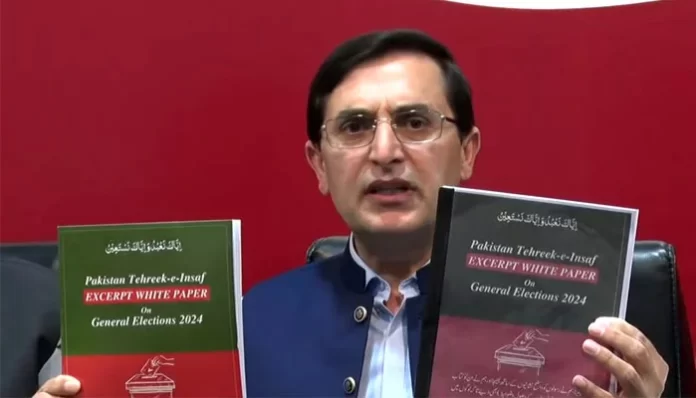PTI has issued a white paper alleging rigging in the February 8 elections and is demanding a judicial commission to investigate. Party leaders assert that irregularities undermined their victory, highlighting concerns over the allocation of seats and the ECP’s handling of the polls. They call for electoral reforms to prevent future rigging.
The Pakistan Tehreek-e-Insaf (PTI) has released a white paper alleging rigging in the February 8 general elections. They demand the formation of a judicial commission to investigate the alleged “snatching of the 180 seats”.
At a press conference in Islamabad, PTI Chairman Barrister Gohar asserted that they had won 180 seats. he further alleged that these seats were redistributed to other parties via Form 47. Gohar expressed disappointment that it has not yet received a hearing date despite filing a petition in the Supreme Court against the alleged rigging.
300-page white paper
Gohar announced the issuance of a 300-page white paper to shed light on how the alleged mandate theft occurred. In the February 8 elections, independent candidates supported by PTI secured the most National Assembly seats. They were followed by the Pakistan Muslim League-Nawaz (PML-N) and the Pakistan Peoples Party (PPP). However, despite this outcome, PML-N, with support from other parties including PPP, formed a coalition government. Subsequently, they became the largest party in the lower house after the allocation of reserved seats. PTI lost the right to reserved seats as its members ran as independent candidates.
Gohar referenced the Election Commission of Pakistan’s (ECP) invalidation of PTI’s intra-party polls and emphasized how this forced them to contest the general elections without their ‘bat’ electoral symbol. He alleged that their victory was turned into defeat through manipulated Form 47 results.
Gohar emphasized that the white paper relies on reports from international organizations, foreign media, and newspapers. He also advocated for electoral reforms to eliminate rigging. PTI Secretary General Omar Ayub criticized the ECP, accusing it of failing to ensure transparent elections despite receiving substantial funds. Ayub demanded the resignation of the chief election commissioner.

